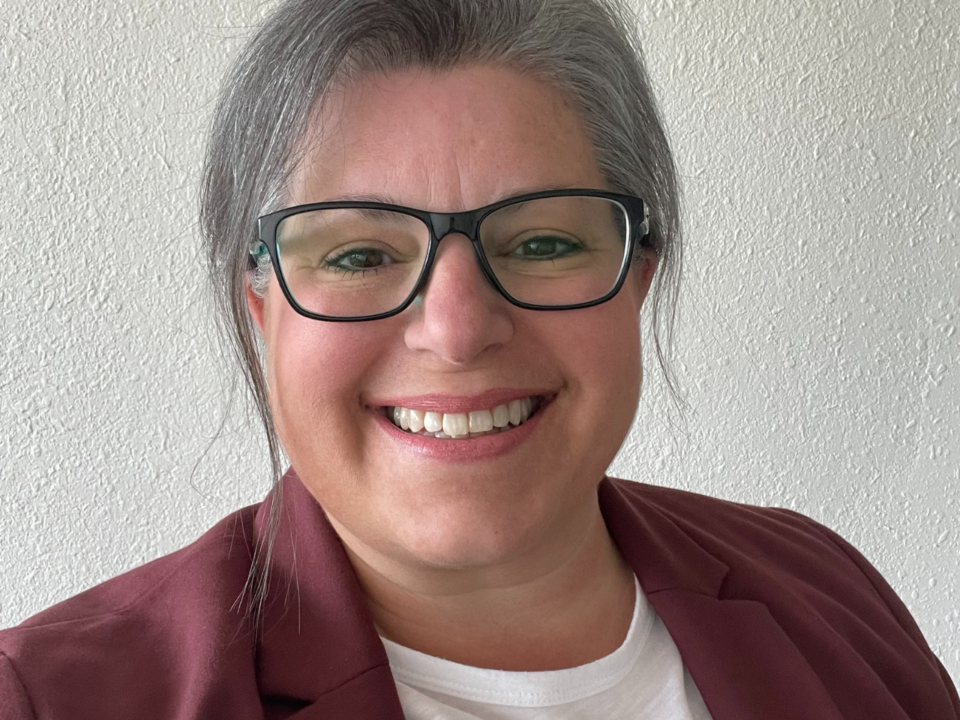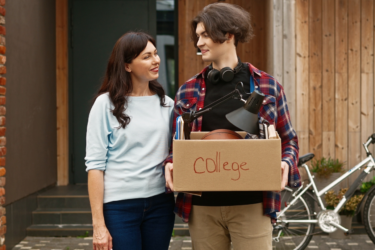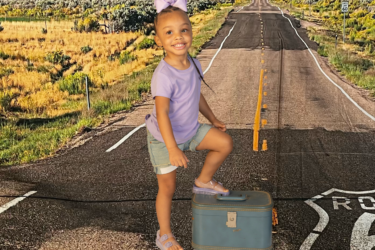The Greek term metanoia signifies a change of mind, a fundamental transformation of outlook, and a new way of loving others and God. This philosophy is one of the foundations of the faith-based residential facility, Metanoia Manor, in Baton Rouge. Metanoia was the idea of Father Jeff Bayhi in 1992. He was passionate about human trafficking prevention and wanted to provide a safe haven for girls and young women affected by this modern-day enslavement. This idea came about during a trip to Rome, where he spoke with a religious congregation who had a few nuns who were willing to participate in his idea. It took Bayhi more than a decade to open Metanoia, but in 2018, the building was constructed and five nuns–known as hospitaler sisters of mercy–eagerly joined him in the house.
Since 2018, the manor has grown. Now, the house hosts a counselor, executive director, office manager, additional direct care providers, and up to 11 young girls, and of course–nuns. “They’re the backbone of the home,” says Executive Director
Kelly Tourere. “They’re trained nurses and social workers, and have been here since the beginning.”
While many adolescent homes operate on an emergency basis, Metanoia Manor does not. In fact, the home doesn’t take girls in right away when they’re recovered from their situation. Instead, Metanoia is part of a network with other residential homes for adolescents around the country. The homes share information about girls throughout the country who need a place to live. These girls could be located in places such as state custody, a behavioral health care facility, or on juvenile probation.
Metanoia has a transformational seven-step model, which highlights the many ways the facility helps girls to reach their fullest potential. The model, known as the Metanoia Model, has seven distinct categories: Restoration, Physical Health, Spiritual Health, Mental Health, Life Skills, Education, and Transition. In short, the residents will attend classes, learn valuable life skills, and gain future employment skills so they can become self-sufficient and independent when released from the program.
“We’re program-oriented,” says Tourere. “The girls are on a structured schedule where they take classes, learn basic skills, and apply for scholarships for college.” At the manor, girls attend school, go to therapy, and eventually graduate from the manor’s program. Many girls have gone on to finish high school and some begin college classes before even entering college. In a safe environment like Metanoia, girls are more creative. “They draw, sing, and paint, and bloom so much when
they’re safe.”
The girls attend therapy twice a week and also partake in group counseling. The Metanoia staff eat lunch and dinner with the girls, and spend a lot of time mentoring them. While the environment is exceptionally safe, some girls struggle with the structure of the facility. In fact, cellphones and internet browsing are not allowed. “It’s a structured environment that some are able to adapt to. We do our best to help every girl fit in at our home.”
Once the girls reach the age of 16, the staff in the home teach them how to drive through driver’s ed classes. In fact, someone donated a car to one of the students once they graduated.
Each girl and each situation is different. As with any residential facility, it begins with trust. It starts with the girls trusting the staff and with staff trusting the girls. After graduating from the program, the girls will be allowed to access the internet and create social media accounts. It’s up to the staff to instill safe
browsing habits, and do their best to ensure the girls are protected from cyber threats like cyberbullying, sexual harassment, and other inappropriate online advances. In addition to learning about safe browsing, the girls in the home learn about budgeting, money management, financial literacy, employment skills, and other important advice that sets them up for success in the future. In addition, Tourere says, “We take them out into the community in places where there might be less structure. This allows them to be able to test their own ability to be safe.”
In addition to providing a nurturing safe haven for girls at risk, Metanoia also does a good bit of outreach in an attempt to raise awareness for human trafficking. This includes teaching teachers about the signs of human trafficking and spreading awareness at community events. One
major outreach opportunity was when WAFB asked Metanoia Manor to speak about the signs of human trafficking and share an educational piece on the news. The home is always on the lookout for opportunities to participate in community-wide outreach.
The Metanoia Manor is just one way that Father Bayhi’s idea lives on in the community. “Father Bayhi had the idea
and then that idea culminated into a home. The biggest impact was building a home so that girls can be saved,” says Tourere.





